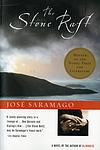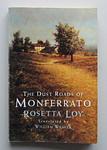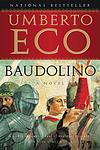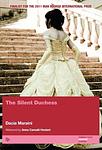The Greatest Italian, Portuguese "Fiction" Books Since 1980
Click to learn how this list is calculated.
This list represents a comprehensive and trusted collection of the greatest books. Developed through a specialized algorithm, it brings together 300 'best of' book lists to form a definitive guide to the world's most acclaimed books. For those interested in how these books are chosen, additional details can be found on the rankings page.
Genres
Countries
Date Range
Reading Statistics
Click the button below to see how many of these books you've read!
Download
If you're interested in downloading this list as a CSV file for use in a spreadsheet application, you can easily do so by clicking the button below. Please note that to ensure a manageable file size and faster download, the CSV will include details for only the first 500 books.
Download-
1. The Name of the Rose by Umberto Eco
Set in a wealthy Italian monastery in the 14th century, the novel follows a Franciscan friar and his young apprentice as they investigate a series of mysterious deaths within the monastery. As they navigate the labyrinthine library and decipher cryptic manuscripts, they uncover a complex plot involving forbidden books, secret societies, and the Inquisition. The novel is a blend of historical fiction, mystery, and philosophical exploration, delving into themes of truth, knowledge, and the power of the written word.
-
2. The Book of Disquiet by Fernando Pessoa
"The Book of Disquiet" is a posthumously published collection of thoughts and musings of a solitary dreamer, who is a Lisbon-based bookkeeper. The book delves into the mind of a man who is discontented with his mundane life and finds solace in dreaming and writing. The narrative is a profound reflection on life, solitude, and the nature of humanity, filled with philosophical insights and poetic language. The protagonist's introspective journey and his struggles with existential despair make it a seminal work in the genre of literary modernism.
-
3. Foucault's Pendulum by Umberto Eco
This novel follows three intellectual friends who work at a small publishing house. As a joke, they start inventing a conspiracy theory about a secret society that has been manipulating world events for centuries. However, as they delve deeper into their own fabrication, they begin to lose sight of what's real and what's not. Their lives take a dangerous turn when actual secret societies believe they hold the key to a universal secret and will stop at nothing to obtain it.
-
4. If Not Now, When? by Primo Levi
This novel follows a band of Jewish partisans behind German lines during World War II. They are a diverse group from different countries and social backgrounds, all brought together by the common goal of sabotaging the Nazi war effort and surviving the Holocaust. The narrative explores their various experiences, the challenges they face, their acts of resistance, and their hopes for a future free from oppression. The title reflects the urgent necessity of their mission and their determination to fight back against their persecutors.
-
5. The Year of the Death of Ricardo Reis by José Saramago
The novel is a metaphysical narrative about a doctor named Ricardo Reis who returns to Lisbon, Portugal after learning about the death of his friend. He finds himself in a society on the brink of dictatorship, and as he navigates through his daily life, he encounters his deceased friend's ghost and a hotel maid with whom he begins a love affair. The book explores themes of identity, love, and the nature of reality, set against the backdrop of political turmoil.
-
6. My Brilliant Friend by Elena Ferrante
This novel tells the story of two friends, Elena and Lila, growing up in a poor neighborhood in Naples, Italy in the 1950s. Their intense, complicated friendship is marked by competition, mutual respect, and deep affection. As they navigate the challenges of adolescence, including family drama, academic struggles, and romantic entanglements, their bond is tested and transformed. The narrative explores themes of female friendship, social class, education, and the struggle for personal autonomy in a patriarchal society.
-
7. Blindness by José Saramago
In this dystopian novel, an unexplained epidemic of "white blindness" sweeps through an unnamed city, causing chaos and panic. The government responds by quarantining the afflicted in an abandoned mental hospital, where conditions quickly deteriorate into violence and squalor. Amid the despair, one woman mysteriously retains her sight and guides a small band of the blind, including her husband, through the harrowing ordeal. The novel explores themes of loss, human nature, and the fragility of civilization.
-
8. Baltasar and Blimunda by José Saramago
"Baltasar and Blimunda" is a historical love story set in 18th century Portugal. The narrative follows a maimed soldier, Baltasar, and a young clairvoyant woman, Blimunda, as they navigate the hardships of life during the Inquisition. Their love story is intertwined with the construction of the Convent of Mafra, a grandiose project initiated by the King. The novel explores themes of love, faith, human resilience, and the struggle against political and religious oppression.
-
9. Silk by Alessandro Baricco
"Silk" is a historical fiction novel that tells the story of a 19th-century French silkworm merchant who travels to Japan for business. During his travels, he becomes enamored with a mysterious woman. His unrequited love for her haunts him for the rest of his life, even as he returns to France and continues his life there. The novel explores themes of love, longing, and the profound impact that brief encounters can have on one's life.
-
10. The Gospel According To Jesus Christ by José Saramago
This novel offers a provocative and humanized retelling of the life of Jesus Christ, diverging from traditional biblical narratives. It presents a Jesus who is all too human, grappling with the complexities of life, love, and a sense of destiny. Through a blend of biblical lore and imaginative fiction, the story explores themes of divinity, free will, and morality, challenging readers to reconsider the foundations of faith and the nature of storytelling itself. The narrative delves into Jesus's relationships, his encounters with figures such as God and the Devil, and ultimately portrays a deeply philosophical and introspective version of a figure central to Western civilization.
-
11. Fado Alexandrino by António Lobo Antunes
"Fado Alexandrino" is a complex narrative that follows the lives of four Portuguese men who meet at a dinner in Lisbon to commemorate their return from the colonial war in Mozambique ten years prior. Each man, representing different social classes, recounts his life before, during, and after the war, revealing their personal struggles and the impact of the war on their lives. The novel also reflects the political and social changes in Portugal from the dictatorship era to the revolution and its aftermath.
-
12. The Neapolitan Novels by Elena Ferrante
"The Neapolitan Novels" is a four-part series that explores the intricate and lifelong friendship between two women from Naples, Italy. The series spans several decades, beginning in the 1950s, and provides a detailed examination of the women's lives, struggles, and the societal pressures they face. The narrative delves into themes of identity, friendship, love, violence, and socio-political changes in post-war Italy. The series is known for its rich character development and vivid portrayal of female friendship.
-
13. The History of the Siege of Lisbon by José Saramago
This narrative revolves around a proofreader named Raimundo Silva, who, while working on a historical text about the Siege of Lisbon, decides to alter history by adding a single word to the text, turning the factual account into a fictional one. This act of rebellion leads him into a relationship with his boss, Maria Sara, and together they explore the consequences of questioning historical facts and narratives. The story also delves into the power of language and storytelling, and the blurred lines between history and fiction.
-
14. Troubling Love by Elena Ferrante
This novel follows a woman who returns to Naples after her mother's mysterious death, determined to understand the enigmatic life her mother led. As she delves into her mother's past, she uncovers a web of secrets and discovers more about her own identity in the process. The narrative explores themes of mother-daughter relationships, identity, and the power of the past.
-
15. Pereira Maintains by Antonio Tabucchi
"Pereira Maintains" is a novel set in the backdrop of 1938 Portugal during the fascist dictatorship of Antonio de Oliveira Salazar. The narrative follows Pereira, a widowed, overweight editor of the culture section of a second-rate Lisbon newspaper, who becomes politically awakened after meeting a young anti-fascist. As he grapples with his conscience, he risks everything to help his new friend and his pregnant girlfriend escape to safety. The story is a compelling exploration of the struggle for moral integrity in a climate of political oppression.
-
16. The Return Of The Caravels by António Lobo Antunes
In this novel, the ghosts of Portugal's colonial past return to haunt the present, as the caravels from the age of exploration sail back into the Tagus River, bringing with them the historical figures from the 15th and 16th centuries. The narrative weaves together the lives of these returned explorers with those of contemporary Lisbon's denizens, blurring the lines between past and present. Through a series of interconnected stories, the book explores themes of identity, nostalgia, and the complex legacy of colonialism, as characters grapple with the dissolution of the Portuguese empire and the reintegration of its former colonies, reflecting on the impact of history on individual lives and national consciousness.
-
17. Treaty Of The Soul's Passions by António Lobo Antunes
"Treaty of the Soul's Passions" is a profound exploration of human emotions and the complexities of the inner self. Through a series of interconnected stories and reflections, the narrative delves into the depths of love, despair, joy, and suffering, painting a vivid picture of the human condition. The author masterfully weaves a tapestry of characters and experiences, each revealing different facets of the soul's journey through life. With poetic language and rich psychological insight, the book invites readers to confront their own passions and question the nature of existence itself.
-
18. Karingana Ua Karingana by José Craveirinha
"Karingana Ua Karingana" is a collection of poetry that delves into the rich cultural heritage and history of Mozambique. Through vivid and evocative imagery, the author explores themes of love, loss, and the struggles faced by the people of his country. Craveirinha's powerful and poignant verses offer a glimpse into the complexities of Mozambican society, while also celebrating its resilience and beauty.
-
19. The Stone Raft by José Saramago
In this surreal exploration, the Iberian Peninsula breaks off from the rest of Europe and begins to drift across the Atlantic Ocean. As the governments and international community scramble to understand and respond to the phenomenon, five disparate individuals find themselves drawn together on a journey across the newly isolated landscape. Through their experiences and interactions, the narrative explores themes of identity, nationality, and the arbitrary nature of borders.
-
20. I'm Not Scared by Niccolò Ammaniti
Set in a small Italian village during the scorching summer of 1978, this novel tells the story of a 9-year-old boy who discovers a horrific crime being hidden by the adults in his community. The boy, while exploring an abandoned farmhouse, stumbles upon a young boy being held captive in a hole. As he tries to help the captive boy, he is forced to face the moral complexities of his world and the terrifying realization that his own father might be involved in this cruel act. The story is a poignant exploration of innocence, friendship and the loss thereof, and the harsh realities of adulthood.
-
21. The Dust Roads Of Monferrato by Rosetta Loy
Set against the backdrop of rural Italy, the novel weaves a rich tapestry of family saga and historical transformation. It follows the lives of several generations of a family in the Monferrato region, as they navigate the tumultuous changes of the 20th century. Through wars, social upheaval, and personal trials, the characters' stories intertwine with the dusty roads of their homeland, painting a vivid portrait of a community bound by tradition yet facing the inevitable march of progress. The narrative delves into themes of memory, identity, and the enduring impact of the past on the present, all while celebrating the beauty and resilience of the Italian countryside.
-
22. Baudolino by Umberto Eco
Set in the 12th century, the novel follows Baudolino, a self-proclaimed liar and adventurer, as he travels from his home in Italy to the mythical kingdom of Prester John. Along the way, he becomes embroiled in a series of political and religious intrigues, meets a variety of fantastical creatures, and tells a series of increasingly elaborate lies. The narrative is framed as a story Baudolino is telling to a Byzantine historian, adding another layer of unreliability to his already questionable narrative.
-
23. Terra Sonâmbula by Mia Couto
"Terra Sonâmbula" by Mia Couto is a captivating novel set in war-torn Mozambique, where two individuals, a young boy and an old man, cross paths and embark on a journey that intertwines their lives. Through their encounters with other characters and their shared experiences, the book explores themes of loss, displacement, and the power of storytelling to heal and provide hope in the face of adversity. The lyrical prose and magical realism elements create a rich and evocative narrative that immerses readers in the complex and haunting world of post-colonial Mozambique.
-
24. The Silent Duchess by Dacia Maraini
This novel is a poignant exploration of the life of an 18th-century Sicilian noblewoman, born into privilege yet silenced by a congenital disability. Through her eyes, readers experience the constraints and expectations placed on women of her time, navigating a world where her voice is metaphorically and literally stifed. Despite the limitations imposed by her society and her own family, she embarks on a journey of self-discovery and defiance, seeking love, intellectual fulfillment, and a sense of identity within the opulent yet oppressive confines of her aristocratic life. The narrative delves into themes of power, gender, and the quest for personal freedom, painting a vivid picture of historical Sicily and the resilience of the human spirit.
-
25. Cain by José Saramago
The novel explores the biblical story of Cain and Abel from the perspective of Cain, after he murdered his brother. The author reimagines the Old Testament by having Cain time travel to key events and interact with biblical figures such as Noah and Abraham, challenging the traditional interpretations of morality, justice, and faith. Cain's journey reveals a critical view of God and the paradoxes of the human condition.
Reading Statistics
Click the button below to see how many of these books you've read!
Download
If you're interested in downloading this list as a CSV file for use in a spreadsheet application, you can easily do so by clicking the button below. Please note that to ensure a manageable file size and faster download, the CSV will include details for only the first 500 books.
Download






















